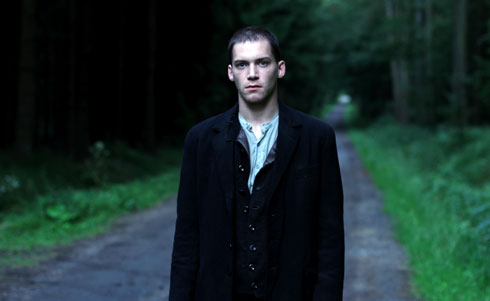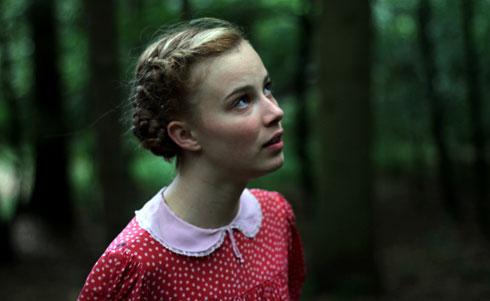Brilliantly played by Saskia Rosendahl, the eponymous teenage heroine of Lore (full name, Hannelore) faces a demanding double journey: both the physical slog through end-of-war Germany, a country fallen into chaos, and the more complicated process of acknowledging, like the nation itself, past Nazi complicity. On the cusp of adolescence, she's forced into adult responsibility for her younger siblings, just as her inner world of sexual feeling is awakening - everything pushes her towards maturity, and she must cope or perish.
Australian director Cate Shortland’s second feature combines a fertile sensuality of perception with a bleakness in what we see. It begins with rapid family flight, as a grand Nazi home in the Black Forest is packed away to the bare minimum of a few suitcases. The SS father, boorish-looking but the apple of his children’s eyes, hurries to burn files incriminating his past on the Eastern front, before leaving his family in temporary safety at a forest cottage; the mother (Ursina Lardi), haunted and chain-smoking, later turns herself in, telling eldest daughter Lore to lead her younger sister and three brothers (one still infant), to their grandmother’s house outside Hamburg - they face a journey across the whole country, divided by occupying forces, where food is scarce, strangers more likely hostile, and trains hardly run any more.
The Germans are made to queue in front of photographs of concentration camp atrocities
After such early privilege and unquestioning belief in Hitlerite ideology, the children are now wandering across fields, through forests, stumbling across decay and death. Skies are lowering as they pass through an often dark but paradoxically fecund landscape, observed in sometimes softer-focus detail and frequent close-up in Adam Arkapaw’s outstanding cinematography: when light appears, the clarity of its beams and their shading hits us like a revelation, while an often shaky hand-held camera brings in every detail out there, oblique angles defining private spaces, away from the surrounding world. Based on Rachel Seiffert’s novel The Dark Room, the script, co-written with Robin Mukherjee, is light on dialogue, but Shortland’s film seems full, Max Richter’s plangent score and a rich sound script ringing strongly.
 Human contact for the children along their lonely way is rare, driven by bartering diminishing valuables for food, except for a stop in a holding centre, where in return for handouts - baby Peter is almost a tool to be traded, a guarantee of food - the Germans are made to queue in front of photographs of concentration camp atrocities. Only Thomas (Kai Malina, pictured above right) tags along, drawn to Lore, his presence offering a degree of protection; he has Jewish papers (they have none at all), but Lore, her Nazi feelings still running strong, is repelled, even while her body is attracted.
Human contact for the children along their lonely way is rare, driven by bartering diminishing valuables for food, except for a stop in a holding centre, where in return for handouts - baby Peter is almost a tool to be traded, a guarantee of food - the Germans are made to queue in front of photographs of concentration camp atrocities. Only Thomas (Kai Malina, pictured above right) tags along, drawn to Lore, his presence offering a degree of protection; he has Jewish papers (they have none at all), but Lore, her Nazi feelings still running strong, is repelled, even while her body is attracted.
Shortland manages outstandingly that rare thing, making a film, totally convincingly, in a language that’s not her native one. More than that, she reminds us of the very basics of cinema itself - image, light, sound, gesture. The performances give Lore the quality of life itself observed, underpinned by the sureness of Shortland’s filmic touch.
Watch the trailer for Lore















Add comment